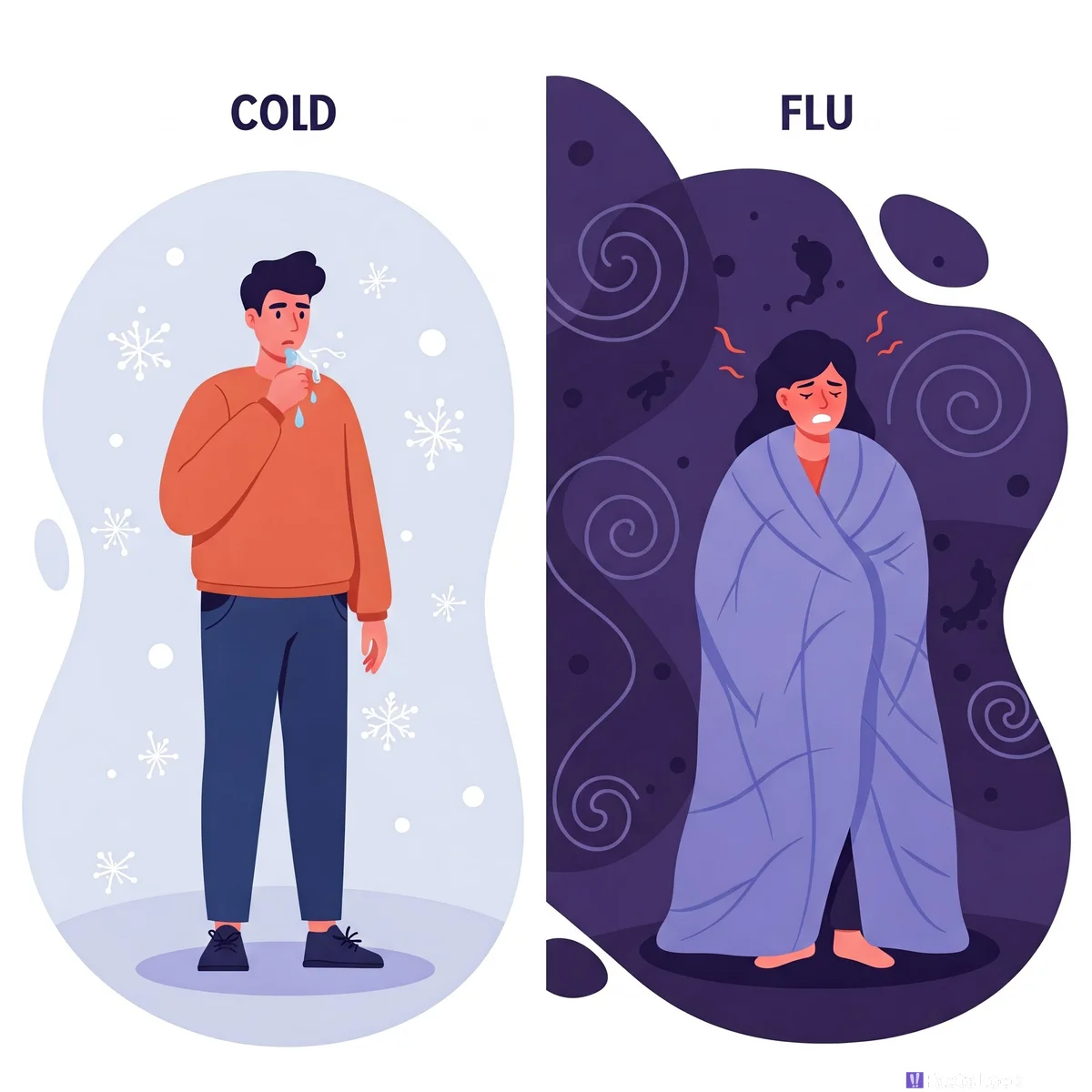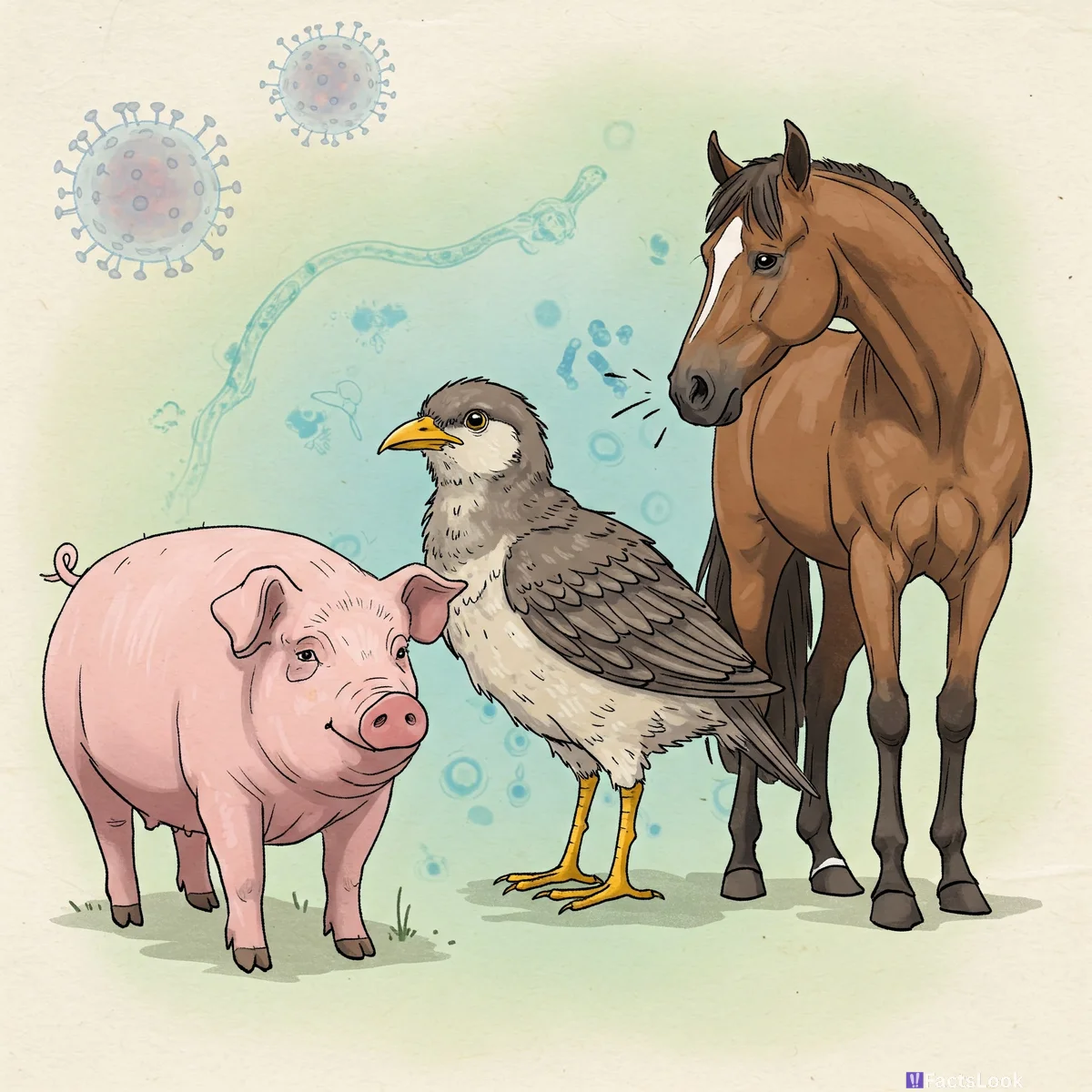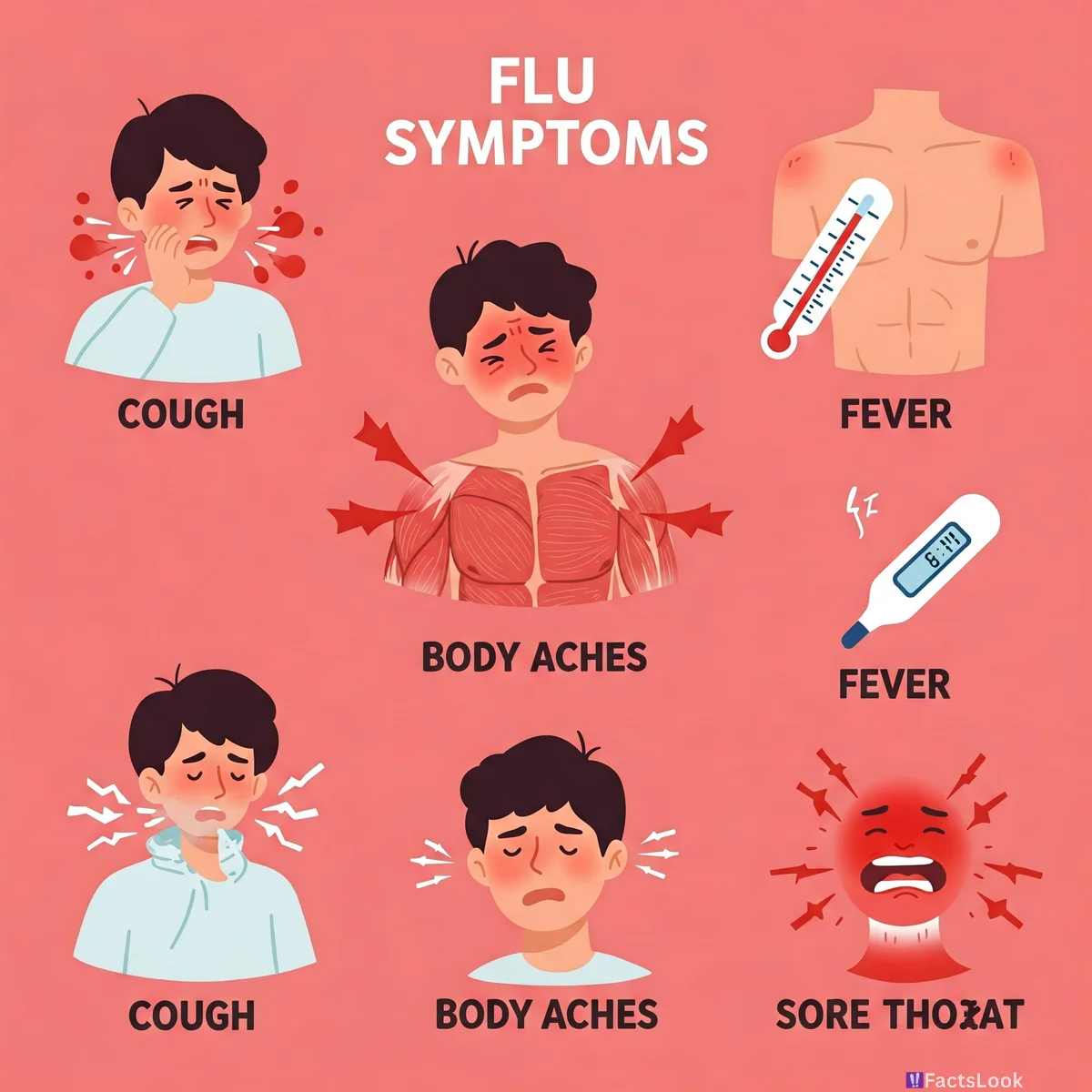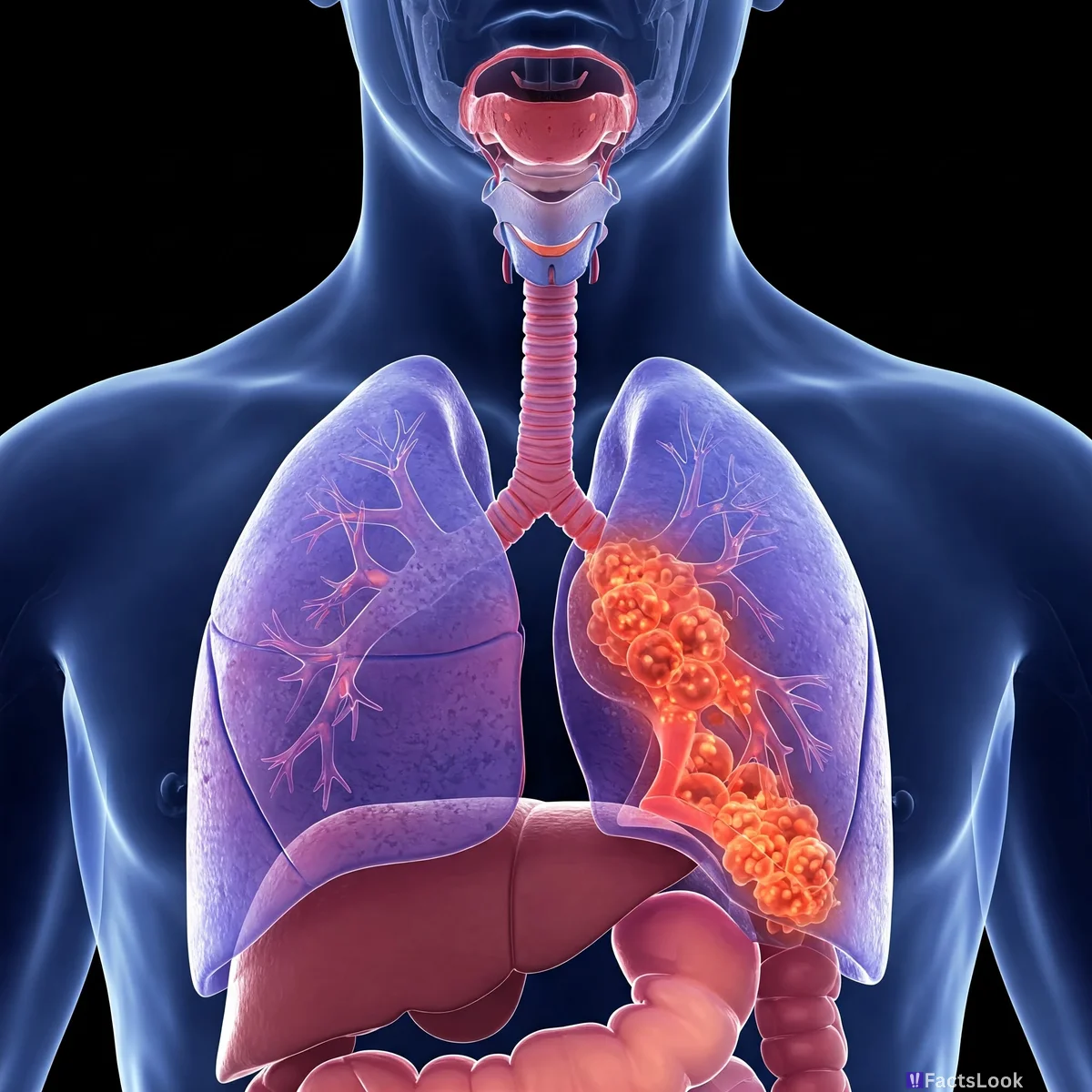25 Flu Facts You Need to Know for a Healthy 2025 & Beyond | FactsLook
The Flu: More Than Just a Bad Cold

Many mistake the flu for a severe cold, but it’s significantly different! Influenza viruses cause a rapid onset of symptoms like fever, body aches, and fatigue. While colds develop gradually, the flu hits you like a ton of bricks. Understanding this difference is crucial for proper treatment and prevention. Don’t underestimate the flu's impact!
Flu Viruses Are Constantly Evolving

Influenza viruses are masters of mutation. This is why annual flu vaccines are essential. The virus constantly changes its surface proteins (Hemagglutinin & Neuraminidase), meaning immunity from previous infections or vaccines doesn't always guarantee protection in the next flu season. This is known as 'antigenic drift'.
Flu Season Isn't Just About Winter
While peaking between December and February, flu activity can begin as early as October and extend as late as May. The timing and severity can vary year to year. Knowing this extended timeframe is vital for year-round awareness and taking preventative measures, not just during colder months.
Your Age Impacts Your Flu Risk

Young children (under 5) and adults 65 and older are at higher risk of developing serious flu complications. This is due to developing or weakened immune systems. Prioritizing vaccination for these groups is paramount. [Source: CDC - https://www.cdc.gov/flu/high-risk.htm]
The 'Spanish Flu' Pandemic Was Devastating
The 1918-1919 Spanish Flu pandemic infected an estimated 500 million people worldwide and resulted in 50-100 million deaths. It was a stark reminder of the flu’s potential for global catastrophe and led to advancements in public health infrastructure.
Flu Can Affect Animals Too!

While typically a human illness, influenza viruses can sometimes infect animals like pigs, horses, and birds. These animal strains can occasionally mutate and jump to humans, leading to new flu variants. This is a key area of surveillance for public health officials.
Fever Isn't Always Present with the Flu

While high fever is a common symptom, not everyone with the flu will experience it, especially older adults. Other symptoms like cough, fatigue, and body aches can be prominent even without a fever. Don't rule out the flu solely based on the absence of a fever.
You’re Contagious *Before* You Feel Sick
You can begin spreading the flu virus one day *before* you start experiencing symptoms and up to 5-7 days after becoming sick. This is why practicing good hygiene, like covering coughs and frequent handwashing, is so important, even when feeling well.
Flu Complications Can Be Serious

The flu can lead to serious complications like pneumonia, bronchitis, sinus infections, and ear infections. For individuals with underlying health conditions, these complications can be life-threatening. Prompt medical attention is crucial if symptoms worsen. [Source: NIH - https://www.niaid.nih.gov/diseases-conditions/flu-influenza]
The Flu Vaccine Doesn't Cause the Flu
A common misconception! Flu vaccines contain inactivated (killed) virus or a single protein from the virus. They cannot cause infection. You might experience mild side effects like soreness or low-grade fever, but these are immune responses to the vaccine, not the actual flu.
Different Flu Vaccine Types Exist
There are various flu vaccine formulations, including standard-dose shots, high-dose shots (for seniors), cell-based vaccines, and recombinant vaccines. Your doctor can recommend the most appropriate option based on your age and health status.
Handwashing is Your First Line of Defense

Frequent and thorough handwashing with soap and water is one of the most effective ways to prevent the spread of the flu. Scrub for at least 20 seconds, especially after coughing, sneezing, or touching surfaces in public places.
Disinfect Surfaces Regularly
Flu viruses can survive on surfaces for up to 48 hours. Regularly disinfecting frequently touched surfaces like doorknobs, countertops, and phones can help eliminate the virus and reduce transmission.
Boost Your Immune System Naturally

A healthy lifestyle significantly strengthens your immune system. Prioritize adequate sleep, a balanced diet rich in fruits and vegetables, regular exercise, and stress management to enhance your body’s natural defenses against the flu.
The Flu Impacts the Economy
The flu causes significant economic burdens due to lost productivity, healthcare costs, and absenteeism. The CDC estimates the flu costs the US billions of dollars annually. Prevention efforts can benefit not only individual health but also the overall economy.
Flu Season 2025 Predictions – What to Expect

Predicting the severity of Flu Season 2025 is challenging. Experts analyze data from the Southern Hemisphere’s flu season (their winter is our summer) for clues. Factors like vaccine effectiveness and widespread immunity will play a crucial role. Stay updated with CDC forecasts.
Antiviral Drugs Can Reduce Flu Severity
If you get the flu, antiviral drugs can lessen symptoms and shorten the duration of illness, especially if started within 48 hours of symptom onset. These prescriptions can be life-saving for high-risk individuals. Consult a doctor.
Masks Help Limit Flu Spread

Wearing a mask, especially in crowded indoor spaces, can significantly reduce the spread of respiratory viruses like the flu. Masks act as a physical barrier, preventing the transmission of virus-containing droplets.
The Flu Virus Travels in Droplets
The flu spreads primarily through respiratory droplets produced when infected people cough, sneeze, or talk. These droplets can travel up to six feet. Hence, social distancing and covering coughs and sneezes are vital preventive measures.
Vitamin D May Play a Role

Some studies suggest a link between Vitamin D deficiency and increased susceptibility to respiratory infections, including the flu. Maintaining adequate Vitamin D levels may support immune function, but more research is needed. Discuss with your healthcare provider.
The Importance of Staying Home When Sick

If you’re experiencing flu symptoms, stay home from work or school to avoid spreading the virus to others. This simple act of self-isolation is crucial for protecting your community.
Flu Symptoms Can Mimic Other Illnesses
Flu symptoms can sometimes resemble those of COVID-19 or other respiratory infections. If you're unsure, get tested to confirm the diagnosis and receive appropriate care. Accurate diagnosis is key for effective treatment and control.
Global Flu Surveillance Networks Exist
The World Health Organization (WHO) and the CDC operate global surveillance networks to track flu activity worldwide. This data informs vaccine development and helps prepare for potential pandemics. [Source: WHO - https://www.who.int/influenza/surveillance/en/]
Herd Immunity & Flu Prevention

When a large percentage of the population gets vaccinated, it creates 'herd immunity,' protecting those who cannot be vaccinated (e.g., infants, immunocompromised individuals). Vaccination isn’t just about personal protection; it's about protecting your community.
Comments
Loading comments...